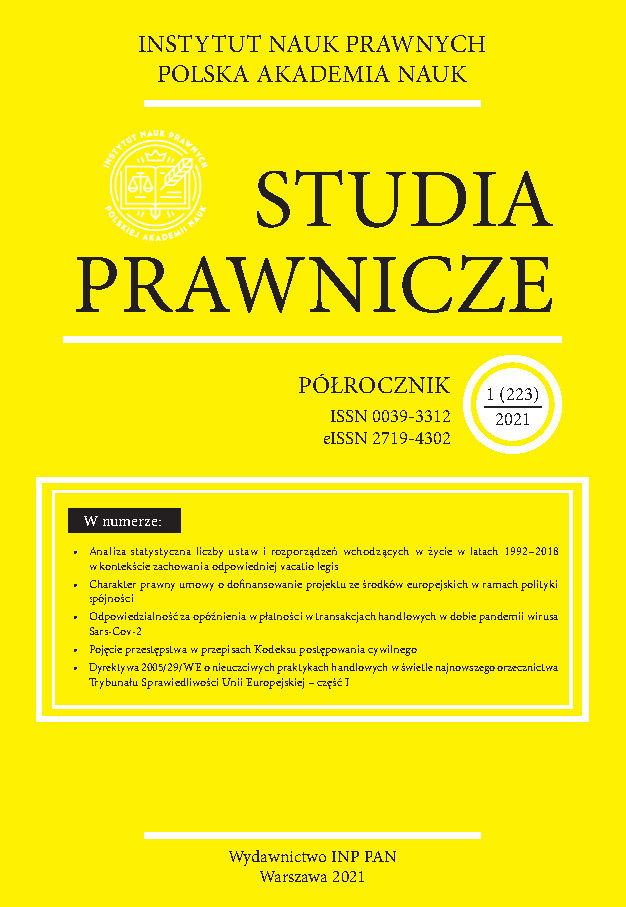Mechanizm odwoływania członka Izby Gmin w ustroju konstytucyjnym Zjednoczonego Królestwa
Recall mechanism for a member of the House of Commons in the constitutional system of the United Kingdom
Author(s): Grzegorz PastuszkoSubject(s): Law, Constitution, Jurisprudence
Published by: Instytut Nauk Prawnych PAN
Keywords: House of Commons; United Kingdom; recall; member of parliament; foreign country; member; parliament
Summary/Abstract: The article deals with a new legal institution recall of member of parliament that was established in 2015 in the UK. The aim of this institution is to give voters of a constituency a right to force a by-election, if they are unhappy with their MP. They can use it, however, only if certain conditions are fulfilled. According to the bill it becomes possible to initiate the recall procedure when a member of parliament: 1) is convicted by a UK court of an offence and receives a custodial sentence not more than 12 months, 2) is suspended by the House of Commons for more than 10 sitting days or more than 14 calendar days, 3) is convicted of an offence described in Parliamentary Standards Act 2009. These three restrictive provisions indicate that the recall procedure was not drafted as a mechanism of political accountability of deputies. The real intention of lawmaker was, as may be assumed, protection of ethical standards in the parliamentary life of the UK. As a matter of fact, with recall procedure voters can get rid of a member of parliament who broke some ethic elementary rules while holding his/her mandate. Analyzing the content of the new regulations and their ratio legis, the author tries to answer a question what role the new institution can play in functioning the constitutional system of the UK and following in its political life as well. His general conclusion is that even though we consider the new rules as a kind of revolutionary move in legal dimension (like for example the adjustment of the parliamentary mandate characteristics), we cannot expect any revolution in practice.
Journal: Studia Prawnicze
- Issue Year: 204/2015
- Issue No: 4
- Page Range: 123-140
- Page Count: 18
- Language: Polish

